Luis Riu: “The All-Inclusive service is no longer pioneering and unique, it’s turned into a basic element in our hotels”
30 November, 2023Our All-Inclusive service is highly valued by our guests in almost 80% of our hotels. They know what they’re going to get and, above all, how much it will cost in advance, without any surprise extras. Nowadays, I wouldn’t even consider opening a holiday hotel that wasn’t All-Inclusive (with the exception of 5-star hotels in Spain). The system is already part of our product range and operations and is highly specialised. In my eyes, not offering this service would be a step backwards, but in its beginnings, it was a risky gamble and wasn’t always fully understood or well received.
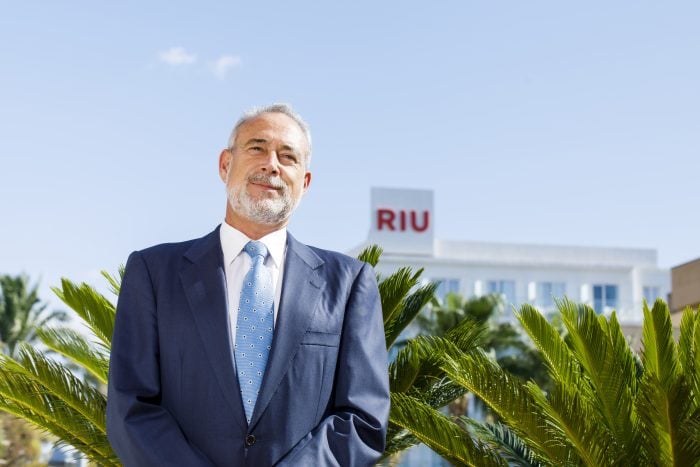
Luis Riu Güell, CEO of RIU Hotels & Resorts, looks back on the history of the chain’s All-Inclusive service.
Our first All-Inclusive hotel opened in 1996: the Riu Merengue in the Dominican Republic. In fact, it was the first of its kind in the country. This was followed by many more hotels that were pioneers in their destinations, such as Cancun, the island of Sal in Cape Verde, Gran Canaria, Chiclana or Morocco. Today, I want to tell you a bit more about this service and how it was implemented in the company.
Jamaica: Embracing the All-Inclusive Experience of the 90s
To see where it all started, we need to take a trip back in time to 1995. This was the year that my wife Isabel and I went on holiday to Jamaica to try out the All-Inclusive-service offered there by local chains. I wanted to experience it just like any other customer as tour operators had told us about it and thought it could be a good option for our hotels in the Dominican Republic where there were no complementary services near the hotels.
I was quite sceptical, first and foremost because we were charging around 50 dollars per person per night for half board at the hotel Riu Taino, while the hotels we visited were charging 250 dollars for their All-Inclusive package. We couldn’t increase our rates that much and I thought that it’d be very difficult to make this increase in services and guest consumption profitable within our price range. In any case, we went there to see what all the fuss was about. In the end we discovered that it was simpler than we thought. It was very similar to full board, i.e., breakfast, lunch and dinner, but with drinks and snacks on top of these three main meals.
The Riu Merengue in Puerto Plata, RIUs first All-Inclusive hotel
Our experience in Punta Cana suggested that our customers needed something more than our traditional services because they couldn’t go out for a walk, have a drink, do some shopping and eat out in the destination. In the Balearic or Canary Islands, we offered guests a hearty breakfast and an evening meal with our half board package, and during the day guests went to the beach and ate in the local restaurants and bars. Or, if they chose to stay at the hotel, we offered a modest menu of sandwiches, burgers and salads at our poolside bars.
When we arrived in Punta Cana, we replicated the model that was working so well for us in Spain, but this turned out to be a mistake. Very early on we had to be creative and expand the options available within the hotel as our guests were at the hotel 24/7. The poolside bar became a seafood restaurant and we had a mojito or rum night in the bar to offer guests a bit more variety.
When we decided to try out the All-Inclusive service with the opening of the Riu Merengue, we had to learn as we went along. The hotel had been designed like all the others with a large main restaurant for breakfast and dinner and a poolside snack bar for lunch, but as it was an All-Inclusive hotel, with a little decoration and a lot of effort, what we ended up calling the “miracle restaurants” began to emerge. They got this name as a small daily miracle turned the poolside bar into a different restaurant every night: Italian, grill or Spanish.
But what we did learn very quickly is that the numbers worked out. We were not able to increase the rates like our counterparts in Jamaica, but we did quickly find a balance between costs and income. Stays in the Caribbean were traditionally very long, lasting for 7, 9 or 14 nights. Nobody in their right mind (or stomach in this case) is capable of consistently eating so much for so many days and it tends to be like a saw, with some peaks followed by periods where the guests give their bellies a much-needed rest. This has changed over the years because stays have become much shorter.
From Punta Cana to Mexico: Riu Yucatan, the first Hotel designed for the All-Inclusive Experience
In any case, our experience at the Riu Merengue led to improvements at the hotel Riu Yucatan that we opened in Playa del Carmen in 1997. This hotel, which was also All-Inclusive, opened with several restaurants and bars. This range has expanded and improved with each project. In these hotels, our intention was to replicate the experience that a customer would have in a destination with more complementary services, i.e., they could choose to have dinner at the buffet or in a different restaurant each evening.
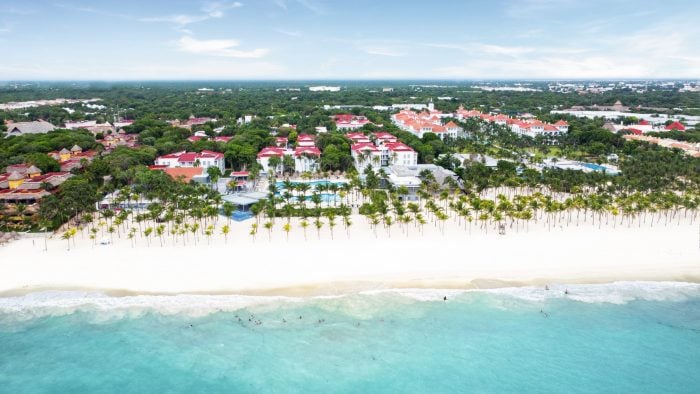
Aerial view of the Hotel Riu Yucatan in Mexico, the first All-Inclusive concept hotel since RIU was founded.
Liquor Dispensers: RIUs distinctive feature in their Caribbean hotel offerings
One thing that struck me in Jamaica is that guests received two bottles of spirits in their room as part of the All-Inclusive service. I wanted to do this too, but I thought that it would be better to offer four different bottles as not everybody likes whisky or gin. While I didn’t want to limit consumption during guests’ stay, I did want to prevent them from taking the bottles out of the room. That’s why I worked together with Seiden, our supplier in Miami, to design the spirits dispenser that we have in all our Caribbean hotels. It makes our All-Inclusive service stand out from other options and is highly valued by our guests. To be honest, I’m surprised that no other chain has introduced it. We first used it at the Riu Palace Macao when we turned it All-Inclusive.
Expansion of RIUs All-Inclusive in Spain and other international locations
The noughties were a time of intense international expansion. We opened our first hotels in Jamaica, Cancun and Nayarit in Mexico, Aruba, the Bahamas, Costa Rica and Morocco, and we also continued to grow in destinations where we already had hotels. At our beach hotels, we focus on the All-Inclusive service. This is also the case in Spain, where our first All-Inclusive hotel was the Riu Gran Canaria, which originally offered the half board package when it opened in 2000 and became All Inclusive less than two years later. It was such a hit with families that we opened the All-Inclusive Riu Chiclana in 2003. These two hotels were the first of their kind in the areas where they are located.
The main challenge: to prove that All-Inclusive does not harm local economies
The opening of the Riu Cancun in 2003 was a very difficult time. Today it’s hard to believe that the sector was against All-Inclusive hotels in this destination, but that is the situation we were facing. The Riu Cancun was the first of its kind in the entire Hotel Zone, much to the anger of taxi drivers, complementary services and their representatives. But I knew what my customers wanted, the regulations didn’t prohibit All-Inclusive hotels and I stood my ground. Today, no one disputes this and it is rare to find hotels that are not All Inclusive.
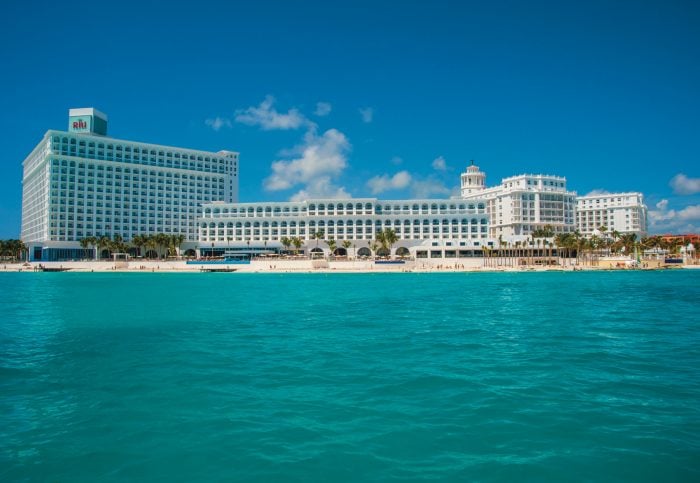
Outdoor area of the Hotel Riu Cancun, the first hotel in the Cancun hotel zone to introduce the All-Inclusive offer in 2003.
There was also some public debate in Spain due to fears that customers would no longer leave the hotel, go on excursions or spend money in the destination. But the reality is very different. Some people need to stick to their budget and have to be very careful with any extras, but as guests have already paid for everything at the hotel, it actually makes them feel like they can consume more when they venture out. It is very human. If you have to pull out your wallet to pay for every soft drink and ice cream in the hotel, you feel like you’re wasting money, but if all that is already covered, when you go out for a walk, you’re more likely to splash out. All our guests at all our hotels get out and about a lot. They go on excursions and visit bars, restaurants and clubs. They take walks, go to the beach and go on cultural visits. Only a minority of customers fuel the myth that All-Inclusive hotel guests don’t step foot outside the hotel.
All-Inclusive by RIU, a guest experience without extras at additional cost
We established our own truly All-Inclusive model from the beginning. We didn’t have drinks or special restaurants with a separate charge, whereas this was common in other competing hotels. I think there was widespread resistance to completely eliminating extra income, but it meant that our operations were simpler as we didn’t have to manage cash or deal with the responsibility of cashing up in the hotel’s bars and restaurants.
However, for other teams, such as those who work in the kitchens, the All-Inclusive service makes things much more complicated. The chef now has to manage food options for both the main restaurant and each themed restaurant. The same goes for the bars. The number of entertainment options has also grown and diversified. The service as a whole multiplied.
There was a time in the noughties when our All-Inclusive service really set us apart from the crowd. We offered good quality, great variety and excellent value for money with little competition. The product is still the same, but it is no longer unique. The All-Inclusive service has become so common that our customers simply take it for granted.
RIUs All-Inclusive: continuously evolving with the latest trends
The US market has had a major impact on the evolution of our services. They are demanding, they are able to pay high rates, and their choices both in our hotels and those of our competitors have shown us how to adapt our products to their tastes. Nonetheless, we must always bear in mind that hotels must offer a good balance as they welcome all kinds of guests. One of the changes we have been introducing recently is the possibility of choosing special wines or enjoying private dinners on the beach at an extra cost. These improvements cannot be included in the nightly rate, but customers are willing to pay for them. They want to have that option and we have to give it to them.
Have so many years of offering the All-Inclusive service allowed us to achieve excellence? Not really. As always, we are constantly listening to our customers, monitoring the competition, keeping an eye on new trends and sometimes trying out our own innovations. One example is our spectacular and well-known RIU Party events with DJs, performances and light and sound effects that our guests can enjoy as part of the hotel’s All-Inclusive package. We cannot say that we’ve crossed the finish line as it never stops moving. That’s why we are constantly discarding, improving and making adjustments. Hard work is the only secret to success.
Fdo. Luis Riu
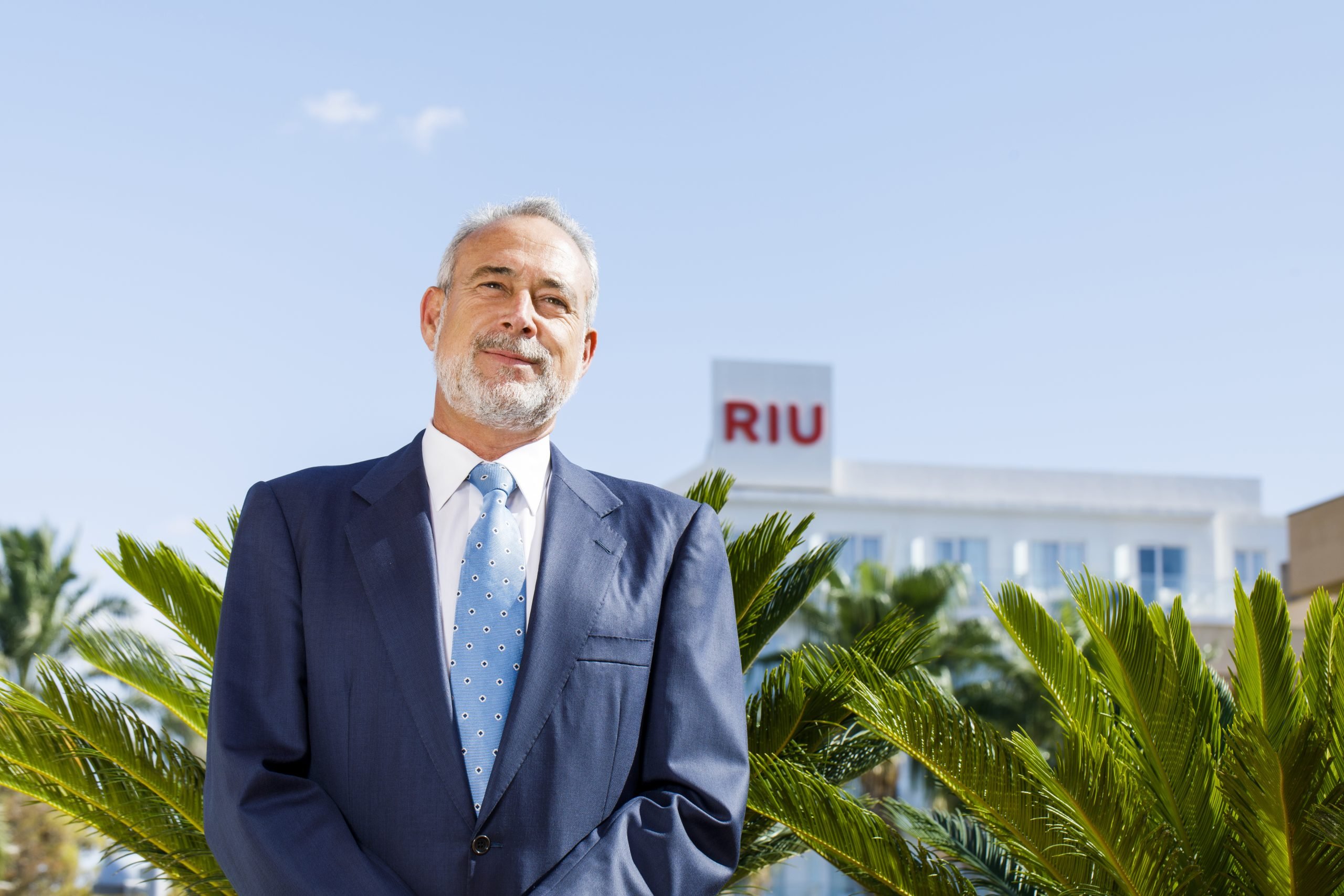
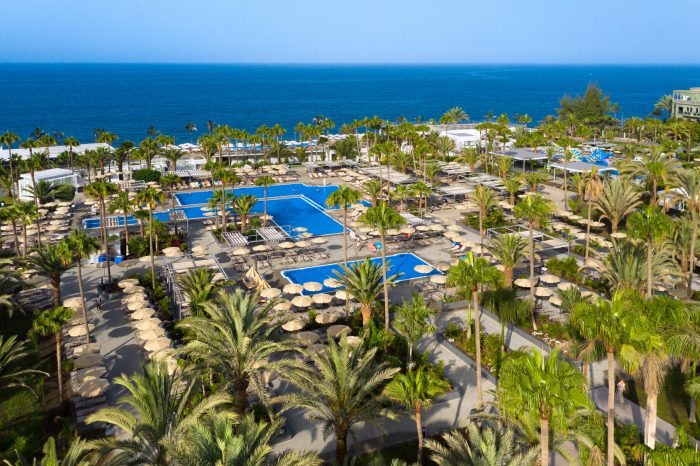
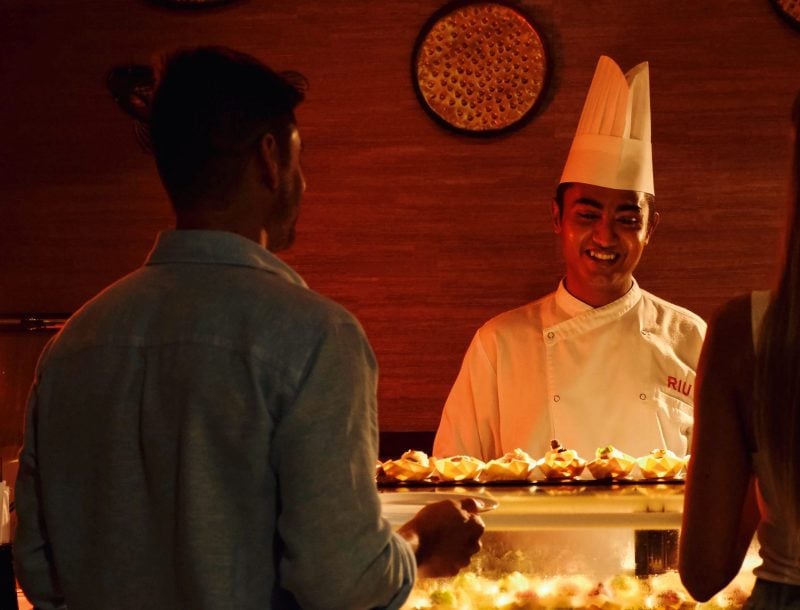
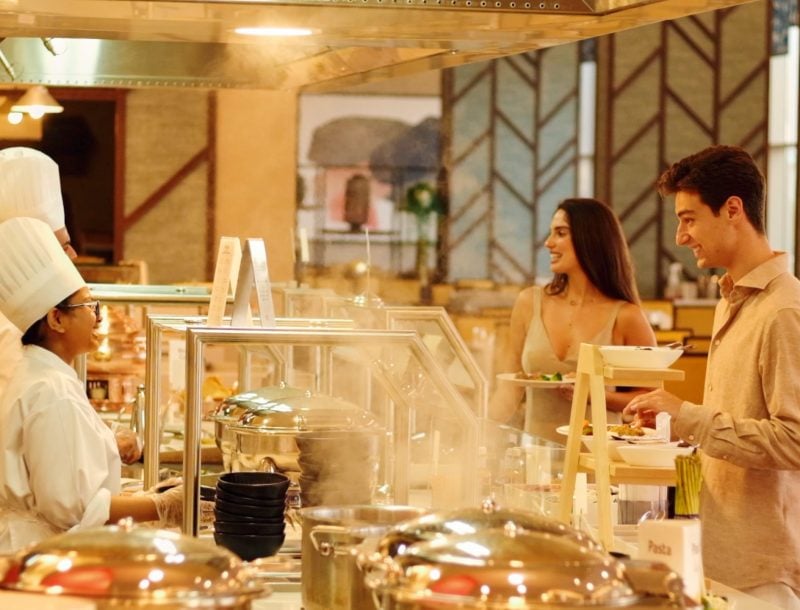
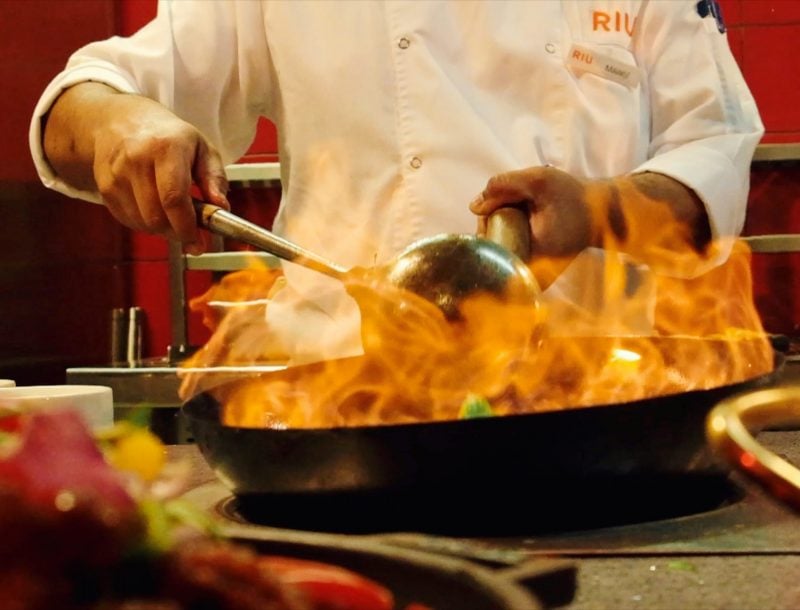

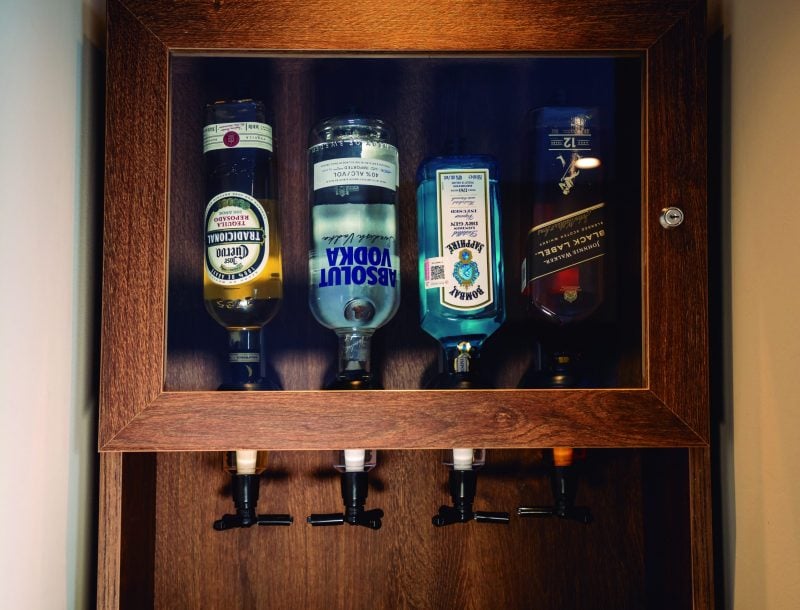
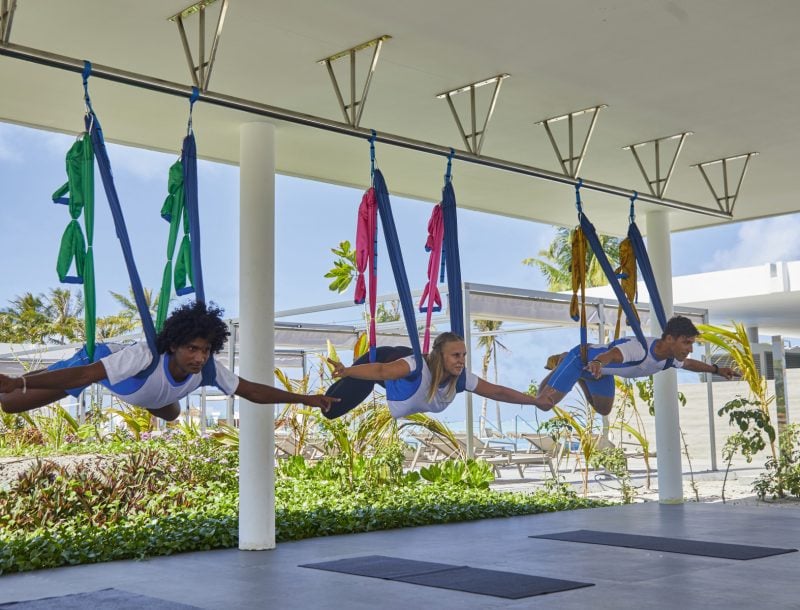





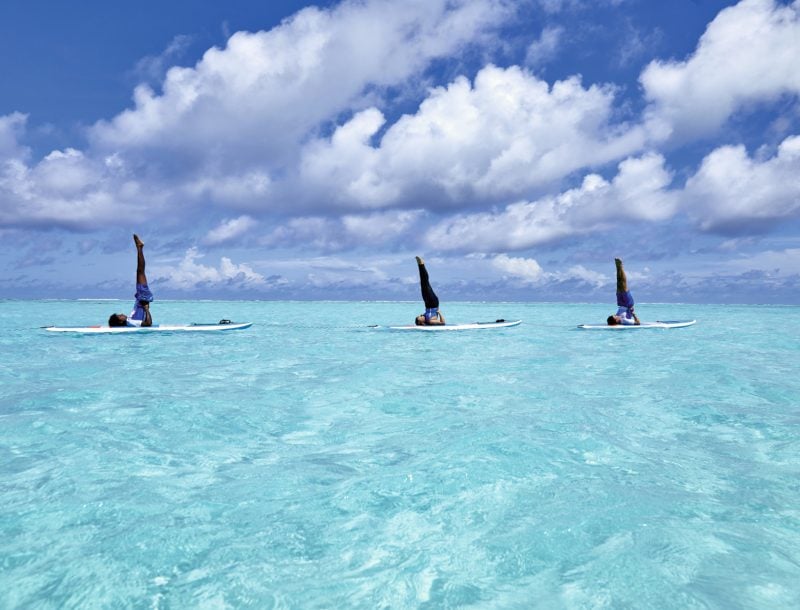

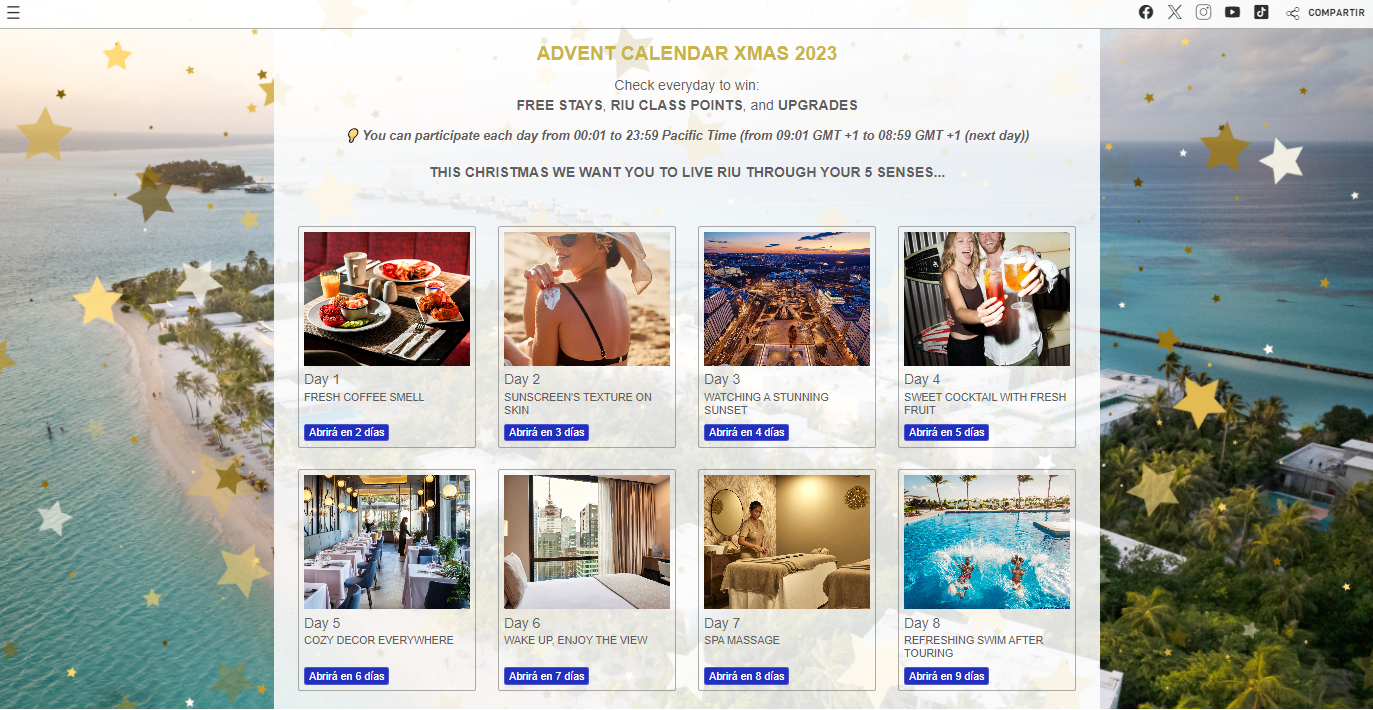
2 Comments
What a great overview of the RIU history.
I go to Riu Paraiso,Lanzarote now rwice a year. My 12th visit coming up in January.